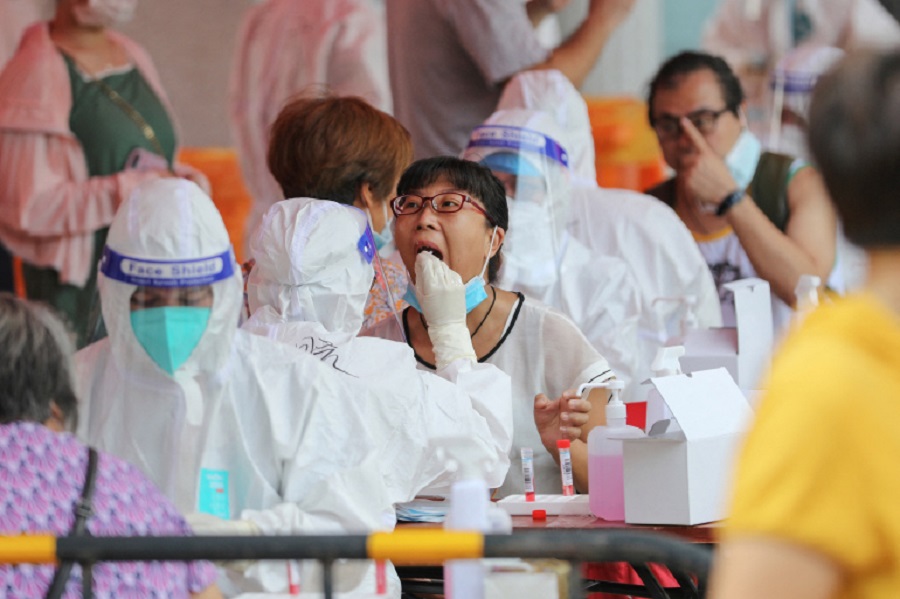As Nigerians wake up to work on Monday, the Chinese are grappling with a major wave of Covid-19 outbreak that is threatening to shut down its entire economy. Two years ago, Nigeria faced its own outbreak that culminated in an economic lockdown that lasted weeks. The latest situation in China, might not lead to a shutdown here but there is palpable fear that it could lead to another round of currency crisis for Nigeria.
The exchange rate between the naira and dollar seems to have settled at an anchor price of between N740-N750/$1 since December. Most analysts, including Nairametrics, expect it to remain this way this year especially as Nigeria’s oil production output has increased. However, the Chinese Covid-19 outbreak could throw spanner in the works being done to stabilize rates.
Reports from several global media outlets indicate the sweeping spread of the virus across the world’s second-largest economy, China is creating widespread business disruptions that could negatively impact the global supply chain. Already, factories are reportedly shutting down as staff report being sick and taking medication at home.
According to a story in the Financial Times, “many office workers have begun to work from home but some factories are becoming thinly staffed as workers call in sick. Business owners and executives said this was causing increasing disruption to production and supply chains.” The situation in China poses an existential threat to Nigeria’s exchange rate stability.
China had tried to contain the crisis by imposing strict lockdowns but a series of protests by its citizens forced the government to relax rules. This decision has now snowballed into a widespread crisis that could have a wide-ranging effect across the globe.
If the situation is not contained earlier, the supply chain disruption created by the outbreak of Covid-19 could affect critical production output, worsening the global inflation rate that central banks around the world have fought so hard to contain this year. If inflation continues to rise, then central banks will have no option but to keep interest rates high which could hurt emerging market currencies like the naira next year.
Earlier, in the year when China experienced a similar Covid-19 outbreak, it helped increased the value of the US dollar against other global currencies as most investors flew to the safety of the greenback. This situation could pan out again if China continues to struggle with the pandemic. If this occurs, then foreign investors will continue to stay out of Nigeria making it worse to attract foreign direct and foreign portfolio inflows, which help with forex liquidity.
A higher inflation rate globally, also makes it very difficult for the government to seek external funding in US dollars, even though the minister of finance announced there were no plans to tap into the Eurobond market next year.
Another lurking challenge we see is the impact of imported inflation due to the outbreak in China. With global production output under threat, the cost of imported goods into Nigeria will likely skyrocket exacerbating Nigeria’s core inflation numbers. The increase in imported goods, also means imports will need to source more forex to meet up with revised prices, increasing the level of demand for forex in the black market where most of them go to source it.
There is also worry that the outbreak in China could trigger a resurgence of the Covid-19 outbreak in other countries, especially Western countries like the US. If this occurs, then we could see the US issue policy guidelines that could have severe impacts on Nigeria. For example, the US Fed might continue to keep its benchmark interest rates high while also imposing travel advisories for countries deemed a Covid-19 threat.
The Chinese outbreak could also push back any plans currently being developed by G7 countries to provide financial aid to African counties like Nigeria. Nairametrics expect, the world’s richest countries to provide a forex package for emerging markets like Nigeria which face a forex liquidity crisis. Should this be deferred, it could have consequences for Nigeria’s forex supply next year.
There has been no official response from the Nigerian government about the outbreak in China.





